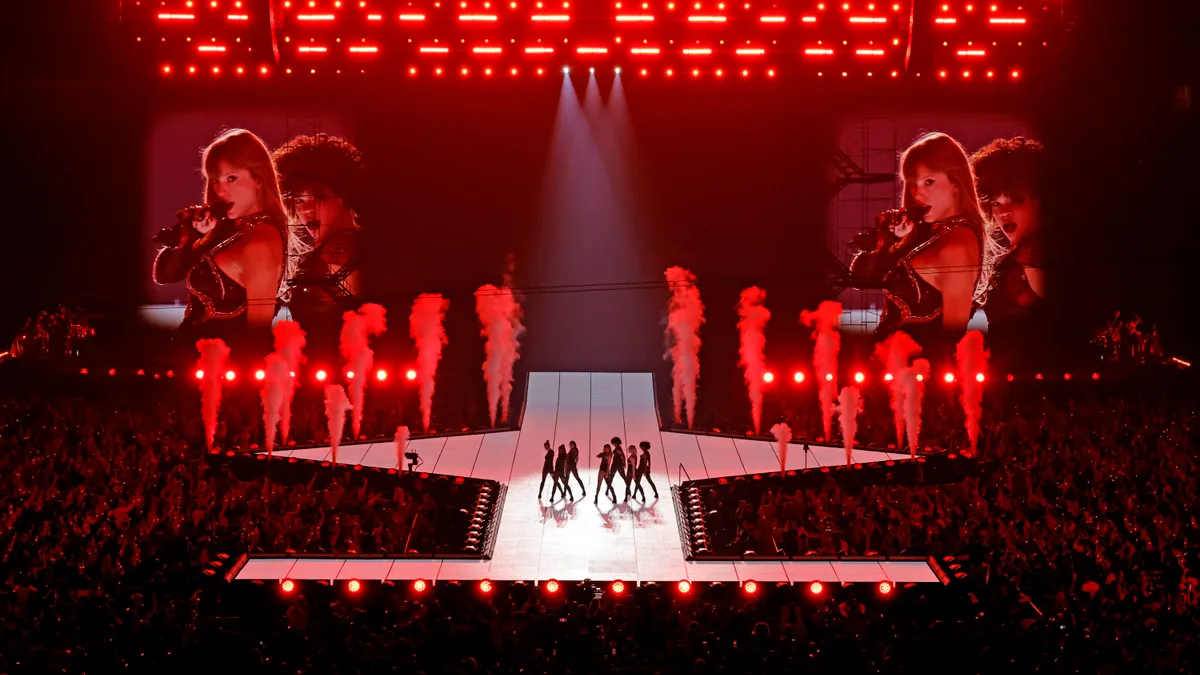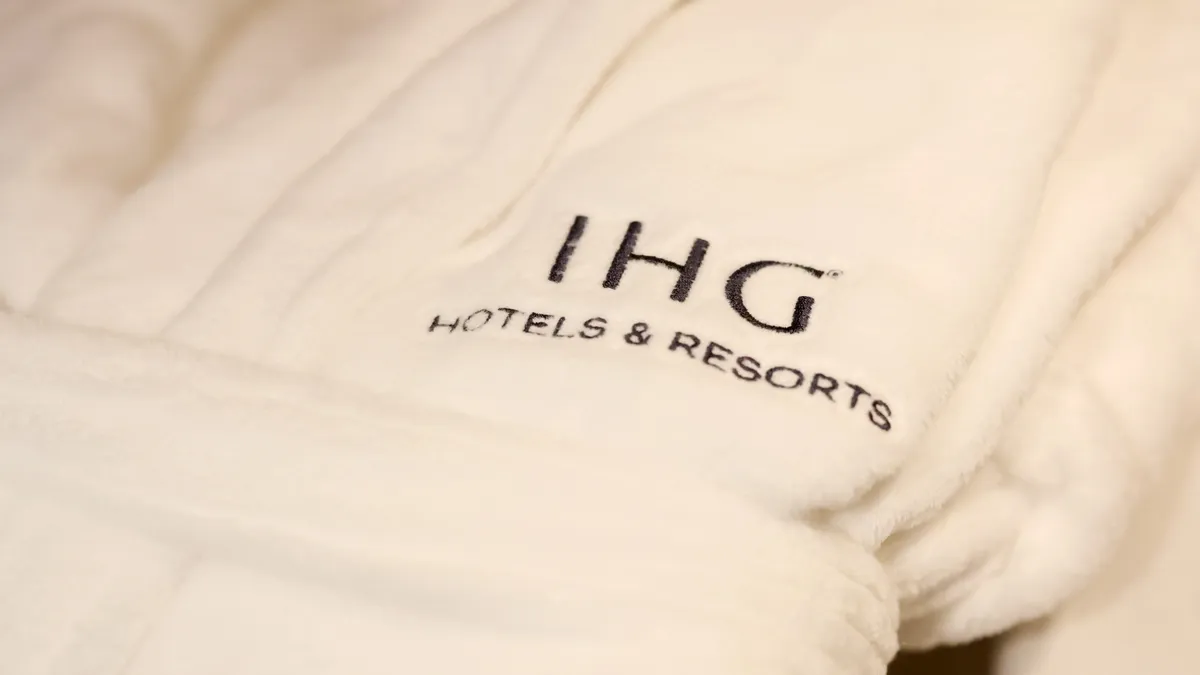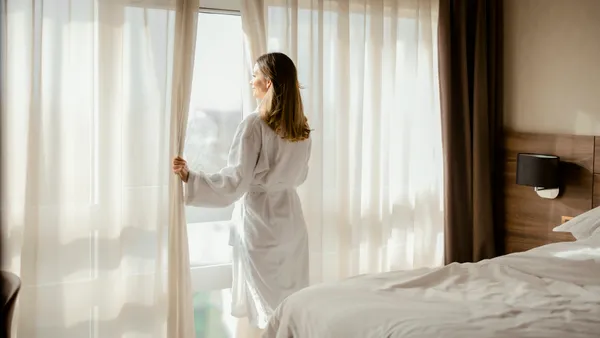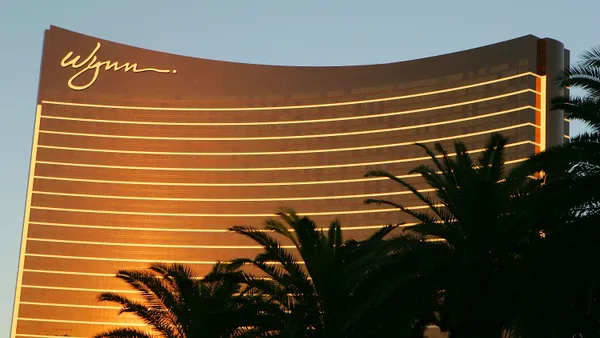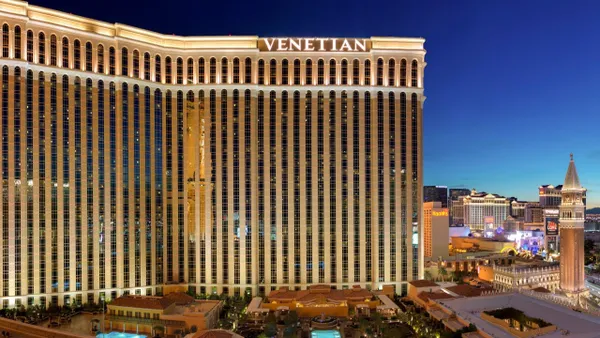Dive Brief:
- From June through early August, Taylor Swift’s tour brought in $208 million of additional U.S. hotel room revenue, according to the latest report from STR. That’s on top of the initial $98.2 million of room revenue the first 28 shows of the tour added to normal seasonal levels.
- According to STR, it’s a conservative estimate, accounting for only 53 concert nights during that period. It does not factor in revenue from extended fan stays, ancillary crew bookings or other hotel revenue streams like parking.
- The total impact on the economies of the markets that hosted the Eras tour continues to be calculated, with analysts coining the revenue bump the “Swift Lift.”
Dive Insight:
Taylor Swift appears to be the unexpected hero of the hotel industry, thanks to the positive financial impact her recent tour has had on markets across the country. And the momentum doesn’t seem to be slowing down.
According to STR, the concert stops typically covered two to three nights and always included a Friday and Saturday. The analysis used the average of matched days in shouldering weeks as a performance baseline. Additional adjustments were made for three markets to account for the reduced performance levels that are typical for the July Fourth holiday.
Two markets — Pittsburgh and Nashville — experienced the biggest Swiftie swell, doubling their RevPAR from shoulder weeks, while eight markets reported RevPAR premiums of 50% or higher. Seattle reported a record RevPAR on July 22 of $317, 38% better than the previous daily market record set during the MLB All-Star Game, which also took place in July.
Across all markets, weekend shows raised market occupancy performance above baselines by 9.8 percentage points on average, from 80.7% to 90.5%. Sunday shows resulted in a more substantial boost of 14.5 occupancy percentage points, from 56.5% to 71%.
In August, during Swift’s series of shows in Los Angeles, striking hotel workers and their supporters called attention to the expected hotel profits and pleaded for the singer to cancel her shows in solidarity with their cause. “In Los Angeles, hotels are doubling and tripling what they charge because you are coming,” an open letter read. “The hotels are making more money than ever, but many workers cannot afford to live close to where they work. Some of them even sleep in their cars between shifts. Others are at risk of losing their homes. Hotel workers are fighting for their lives. They are fighting for a living wage. They have gone on strike. Now, they are asking for your support.”
In comparison to other markets, Los Angeles experienced a modest bump of $42 in RevPAR during the concert run.
Swift will soon kick off the international leg of her tour, which includes stops in South America, Asia and Australia. Currently, according to STR, Melbourne’s highest occupancy level over the next 365 days comes on February 17 (at 60.1%), which is the second night of the tour stop in the city. The same trend is showing up in Sydney too, with occupancy at 64.9% on February 24 — the date of Swift’s Saturday night concert there.

